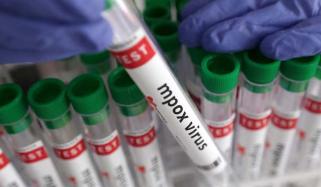
A recent study revealed that blood thinner clopidogrel may offer better outcomes against any cardiac event than aspirin for patients.
Scientists further discovered that clopidogrel did not increase the risk of major bleeding, which is a commonly found adverse effect of blood thinners.
Aspirin, a widely used medicine, is a blood thinner advised for people with chest pain, typically indicating any coronary artery disease (CAD) – a condition where the accumulation of fat obstructs the coronary arteries.
Aspirin helps prevent cardiovascular events by thinning the blood, making it easier to flow into the arteries.
For the study, researchers compared aspirin's effectiveness against clopidogrel, an antiplatelet drug which is also considered an alternative to aspirin and prevents clot formation.
According to a study published in The Lancet and presented at the European Society of Cardiology (ESC) Congress in Madrid, experts assessed seven clinical trials including 28,982 patients overall.
Of the total, some 14,507 people were given clopidogrel, while 14,475 were given aspirin.
The analysis revealed that patients who got clopidogrel showed 14% lower risk of fatal conditions, including cardiac events, stroke, and potential death, with similar rates of major bleeding between the two groups.
Researchers stated clopidogrel “offers superior protection against major cardiovascular and cerebrovascular events compared with aspirin, without an excess risk of bleeding.”
Professor Bryan Williams of the British Heart Foundation said: “This research suggests that clopidogrel, an alternative to aspirin, might be more effective at preventing recurrent heart attack or stroke. Importantly, these benefits come without a greater risk of major bleeding.”
These results are expected to impact the medications doctors prescribe to their patients in emergencies to reduce their risk of cardiac events and life-threatening conditions.












